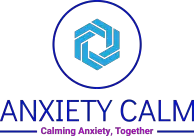
Do you sometimes feel overwhelmed by constant worry and sadness? You’re not alone. Anxiety and depression are common mental health disorders that affect many people worldwide.
In this article, we’ll explore different types of anxiety and depressive disorders, early signs and symptoms to watch out for, and effective coping strategies to help you manage these conditions.
Remember, seeking professional help is crucial if your daily functioning becomes challenging or if you’re struggling to enjoy activities.
Let’s dive in and gain a better understanding of anxiety, depression, and how to cope.
Key Takeaways
- Anxiety and depressive disorders are common and affect a significant portion of the population.
- Anxiety and depression can often coexist and have similar causes such as genetics, environment, and life events.
- Early signs of anxiety and depression include changes in behavior, sleep disturbances, and difficulty concentrating.
- Coping strategies for anxiety and depression include breathing techniques, challenging negative thoughts, setting small goals, and seeking professional help when needed.
Differentiating Anxiety and Depression
If you’re trying to differentiate between anxiety and depression, it’s important to consider the specific symptoms and duration of your feelings. Understanding the relationship between anxiety and depression is crucial for effective coping strategies.
Anxiety is characterized by excessive worry, fear, and restlessness, while depression is marked by persistent sadness, loss of interest, and feelings of hopelessness. Although they are separate conditions, they often coexist, affecting a significant portion of the population.
Coping with anxiety and depression involves various techniques such as diaphragmatic and square breathing, challenging negative thoughts, focusing on the facts, setting small goals, and seeking professional help when necessary.
Common Types of Anxiety Disorders
Identify the specific phobias, social anxiety disorder, generalized anxiety disorder, separation anxiety, and panic disorder as common types of anxiety disorders. Understanding the causes of anxiety disorders is crucial in recognizing their impact on daily life. Anxiety disorders are often caused by a combination of genetic, environmental, and psychological factors. While specific phobias involve an intense fear of certain objects or situations, social anxiety disorder revolves around a fear of being judged or embarrassed in social settings. Generalized anxiety disorder is characterized by excessive worry about various aspects of life, while separation anxiety involves an excessive fear of being separated from attachment figures. Panic disorder is characterized by sudden and intense episodes of fear or discomfort. These anxiety disorders can significantly interfere with one’s daily functioning, leading to a decreased quality of life.
| Common Types of Anxiety Disorders |
|——————————-|—————————–|
| Specific Phobias | Fear of specific objects or situations |
| Social Anxiety Disorder | Fear of being judged or embarrassed in social situations |
| Generalized Anxiety Disorder | Excessive worry about various aspects of life |
| Separation Anxiety | Excessive fear of being separated from attachment figures |
| Panic Disorder | Sudden and intense episodes of fear or discomfort |
Common Types of Depressive Disorders
Recognize the different types of depressive disorders, such as major depressive disorder and persistent depressive disorder, which can significantly impact your mood and daily functioning.
- Major depressive disorder: characterized by a depressed mood lasting for a two-week period, accompanied by feelings of sadness, hopelessness, and loss of interest or pleasure in activities.
- Persistent depressive disorder: involves a depressed mood occurring almost every day for at least two years, with symptoms that may be less severe but can persist for a longer duration.
Differentiating symptoms and treatment options for depressive disorders:
- Symptoms: include feelings of sadness, low energy, loss of appetite, difficulty sleeping, and difficulty concentrating.
- Treatment options: may include psychotherapy, medication, or a combination of both. Cognitive-behavioral therapy (CBT) is a common approach that helps individuals identify and change negative thought patterns. Antidepressant medications may also be prescribed to help regulate mood.
It is important to seek professional help if you experience symptoms of depression, as early intervention can lead to effective treatment and improved quality of life.
The Connection Between Stress and Mental Health
To improve your mental health, it is crucial to understand the connection between stress and its impact on your well-being. Stress can have a significant impact on your mental health, contributing to the development and exacerbation of various mental health conditions, such as anxiety and depression.
Managing stress is essential for better mental well-being. Chronic stress can disrupt your brain’s chemistry and increase the risk of developing mental health disorders. It is important to recognize the signs of stress, such as irritability, sleep disturbances, and difficulty concentrating, and take steps to manage it effectively.
Strategies for managing stress include practicing mindfulness and relaxation techniques, engaging in regular physical activity, seeking social support, and maintaining a healthy lifestyle.
Early Signs and Symptoms of Anxiety and Depression
If you’re experiencing a loss of interest in activities you once enjoyed, significant changes in weight, difficulty with sleep, fatigue, or difficulty concentrating, these could be early signs of anxiety and depression.
Differentiating anxiety and stress can be challenging, but understanding the symptoms can help. Anxiety is characterized by excessive worry, restlessness, and physical symptoms such as rapid heartbeat and sweating. Stress, on the other hand, is a response to a specific event or situation and can be managed with coping strategies.
Coping strategies for stress and anxiety include diaphragmatic and square breathing techniques, challenging negative thoughts, focusing on what’s in your control, and setting small goals.
Seeking professional help is important if you find it difficult to function or if your symptoms worsen. Remember, anxiety and depression are highly treatable, and with the right support, you can find relief.
Effective Coping Strategies for Anxiety and Depression
Try utilizing diaphragmatic and square breathing techniques as effective ways to manage and alleviate symptoms of anxiety and depression.
Mindfulness techniques, such as deep breathing exercises, can help calm the mind and reduce stress. Diaphragmatic breathing involves taking slow, deep breaths, focusing on filling your abdomen with air instead of shallow chest breathing.
Square breathing, also known as box breathing, is a technique where you inhale for a count of four, hold your breath for a count of four, exhale for a count of four, and hold your breath again for a count of four.
Self-care practices, such as engaging in regular exercise, getting enough sleep, and practicing relaxation techniques, can also contribute to managing anxiety and depression.
It is important to remember that these techniques are not a substitute for professional help, and if you are struggling with anxiety or depression, it is important to seek support from a mental health professional.
Seeking Professional Help for Anxiety and Depression
You can seek professional help for anxiety and depression to receive the support and guidance you need for managing your mental health. Therapy can provide numerous benefits, including:
- Expert Guidance: A qualified therapist can help you better understand your symptoms, identify triggers, and develop coping strategies.
- Emotional Support: Therapy provides a safe space to express your feelings and concerns without judgment. A therapist can offer empathy and validation.
- Skill Development: Therapists can teach you practical skills to manage anxiety and depression, such as relaxation techniques, cognitive restructuring, and problem-solving strategies.
When to seek help:
- If your symptoms significantly interfere with your daily functioning and relationships.
- If you experience thoughts of self-harm or suicide.
- If you have tried self-help strategies but haven’t seen improvement.


